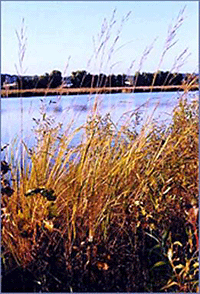 The U.S. Department of Agriculture (USDA), Washington, D.C., USA, has announced the creation of four additional Biomass Crop Assistance Program (BCAP) project areas in six states. The move will expand the availability of non-food crops for use in the manufacturing of liquid biofuels. USDA has allocated up to $45 million for contracts that range between less than five years and up to 15 years. Set-aside acres in California, Kansas, Montana, Oklahoma, Oregon, and Washington will be used for the production of renewable energy crops that will provide the feedstocks to produce more than 2 million gal of biofuels annually.
The U.S. Department of Agriculture (USDA), Washington, D.C., USA, has announced the creation of four additional Biomass Crop Assistance Program (BCAP) project areas in six states. The move will expand the availability of non-food crops for use in the manufacturing of liquid biofuels. USDA has allocated up to $45 million for contracts that range between less than five years and up to 15 years. Set-aside acres in California, Kansas, Montana, Oklahoma, Oregon, and Washington will be used for the production of renewable energy crops that will provide the feedstocks to produce more than 2 million gal of biofuels annually.
Two of the new BCAP project areas, targeted for California, Montana, Washington, and Oregon, will grow camelina on a significant scale. Camelina, an oilseed that can be a jet fuel substitute, is a rotation crop for wheat that can be established on marginally productive land. Another project area will encourage growth of hybrid poplar trees in Oregon on up to 7,000 acres. Additionally, a BCAP project area in Kansas and Oklahoma has been designated to grow up to 20,000 acres of switchgrass.
BCAP helps farmers and forest landowners with the startup costs of planting non-food energy crops for conversion to heat, power, bio-based products, and advanced biofuels. The program is designed to ensure sufficient biomass is available to reduce America's reliance on foreign oil, improve domestic energy security, reduce pollution, and spur rural economic development and job creation. The deadline to sign up for the project is September 16. More information is available online.
The biofuels potential of non-food plants such as prairie cordgrass (photo on the right) will get a boost from the new USDA BCAP program.
TAPPI
http://www.tappi.org/